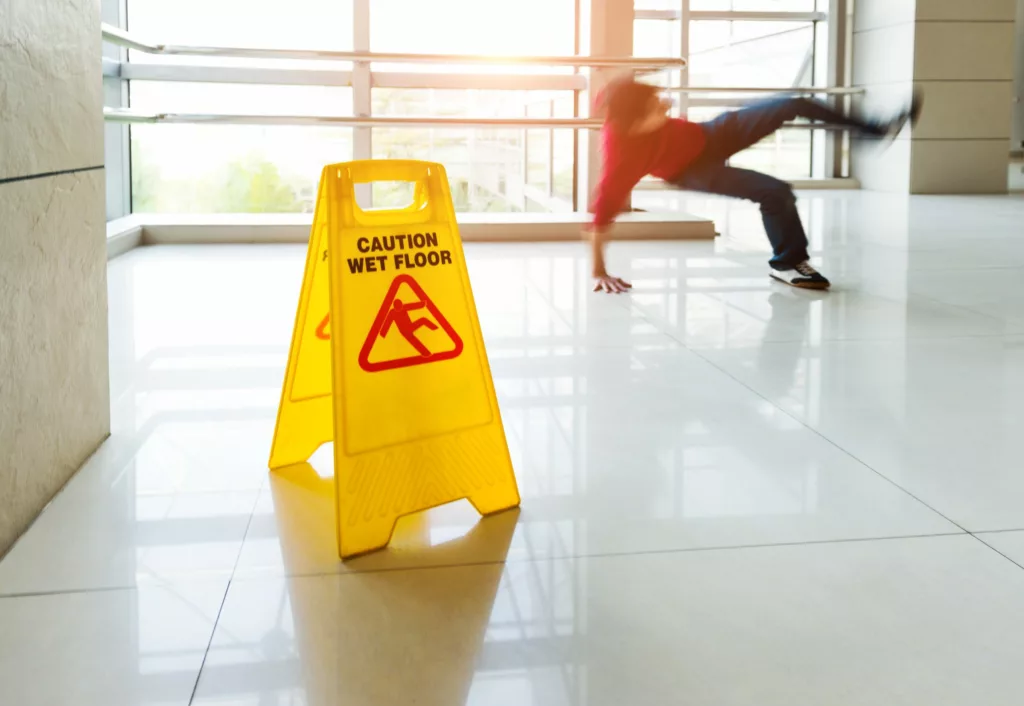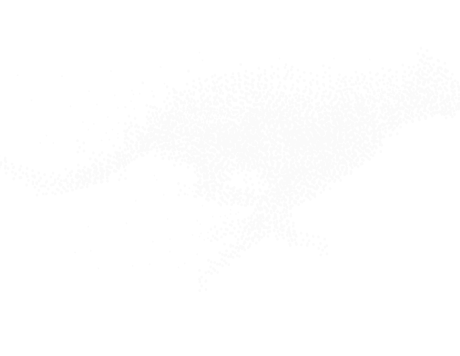If you were harmed on someone else’s property, you might be wondering what the difference is between premises liability and slip and fall cases. In short, slip-and-falls fall under premises liability law.
Property owners are legally obligated to ensure their properties are reasonably safe and free of hazards. When homeowners, business owners, or landowners fail to maintain their properties adequately and someone is injured as a result, the property owner can be held liable for damages.
At Gould Injury Law, we pride ourselves on being “The Fast Firm.” If you or a loved one has been injured in a slip-and-fall or another type of premises liability accident, we will act fast to secure maximum compensation for your losses.
Schedule your free consultation with a member of our skilled legal team today. Call us at 888-WIN-FAST, click to start a live chat, or fill out our evaluation form.

What Is a Premises Liability Case?
Premises liability refers to the area of law that requires land and building owners to keep their premises safe and to prevent injuries. When an injury does occur on a person’s property due to a hazardous or dangerous condition, the property owner may be held liable for damages. This is known as premises liability.
There are a variety of dangerous conditions that can lead to premises liability, which include:
- Dog bites or animal attacks
- Swimming pool accidents
- Construction site accidents
- Injuries from falling objects
- Fire accidents
- Inadequate security measures
- Snow or ice accidents
- Cases involving lead paint
- Slip-and-falls
If you were harmed on someone else’s property due to a hazardous condition, an attorney can help you file a premises liability case to recover money for your medical bills and other losses.
What Is a Slip and Fall Case?
The most common type of premises liability claim is a slip-and-fall accident. When property owners fail to remedy a dangerous condition on their property, a person may be hurt by slipping, tripping, and/or falling.
Common causes of slip-and-fall accidents include:
- Recently mopped or waxed floors
- Torn or loose carpeting
- Icy or wet sidewalks
- Potholes
- Lack of guardrails or handrails
- Insufficient lighting
- Debris left in the walkway
- Broken or loose stairs
- Uneven flooring
- Exposed wiring or other tripping hazards
If you suffered a slip-and-fall due to a property owner’s negligence, then you may wish to file a premises liability case to recover compensation for your injuries.
Premises Liability and Slip and Fall Cases Can Happen Anywhere
Slip-and-falls and other types of premises liability accidents can happen almost anywhere in Connecticut. Regardless of where your accident occurred, we will act fast to secure a financial reward from the property owner on your behalf.
We represent clients who have been injured in the following locations:
- Restaurants
- Hotels
- Stores
- Hospitals
- Private residences
- Parks
- Shopping centers
- Apartment complexes
- Government properties
- Schools and college campuses
- Nursing homes
- Casinos, and;
- More
Slip and fall premises liability cases do not always take place inside a building. Someone could be hurt on the outside stairs, sidewalks, parking lots, or other locations. To learn more about how our fast-acting legal team can help you, contact us today.
How to Prove Negligence in Connecticut Premises Liability Cases
Regardless of what type of injury you have suffered, proving fault for premises liability can be complicated. For your case to be successful, you will need to present solid evidence showing the property owner’s negligence.
Your best chance for obtaining solid evidence in a premises liability case is to work with a personal injury lawyer who can conduct a thorough investigation into the incident. When you choose Gould Injury Law to represent you, we will act fast to gather evidence and build a solid case for you.
In order for your premises liability case to be successful, the following elements must be proven.
Duty of care
Property owners have a “duty” or responsibility to ensure nothing on their property causes harm to others. Your personal injury lawyer will need to prove that the defendant owned, leased, or occupied the property where your accident occurred. This is an important step because it makes that person legally liable for maintaining the property.
Whether or not the property owner owed you a duty of care will also depend on whether you had permission to be on the property or not. In premises liability cases, there are three types of visitors: licensees, invitees, and trespassers.
The following is an explanation of each type of visitor:
- Licensee: A licensee is someone who is allowed to be on the property but for his own benefit – not for the benefit of the property owner. For example, a person who digs up your yard to work on utilities, a friend that stops by unannounced, or a salesman.
- Invitee: An invitee is someone who was invited onto the property. Examples of invitees include customers of a store, patrons of a restaurant, and friends invited to a person’s home.
- Trespasser: A trespasser is someone who is on the property without direct or implied permission. In most situations, if a person is injured while trespassing, the property owner will not be found liable.
Breach of duty
The next step in building your premises liability case is to prove that the property owner breached his duty of care. You will need to show that a dangerous condition existed, that he knew or should have known about it, and that he failed to act.
As one example of a breach of duty, suppose you fell down the stairs as a result of a broken handrail, the property owner knew the handrail was broken, and he failed to fix it or provide a warning sign.
Causation
You will then need to show that your injuries were a direct result of the hazardous property condition. The fast-acting premises liability lawyers at Gould Injury Law will collect evidence to prove the hazardous condition caused your injuries.
Evidence presented in premises liability cases may include:
- Eyewitness statements
- Video surveillance footage
- Police accident reports
- Testimony of doctors or other experts
- Maintenance records
- Medical bills
Damages
Lastly, your Connecticut premises liability lawyer will need to prove that you suffered damages as a result of the property owner’s breach of duty.
Available damages may include:
- Medical bills
- Lost wages
- Loss of earning potential
- Disability
- Loss of enjoyment
- Disfigurement
- Emotional distress
- Mental anguish
- Pain and suffering
For people between the ages of 65 and 84, falls are the second-leading cause of injury-related death. In the tragic event that the accident caused you to lose someone in death, you may be eligible to recover wrongful death damages. This could include compensation for funeral expenses, burial costs, loss of inheritance, and more.
At Gould Injury Law, we understand how tight finances can be after a serious injury. Our lawyers know how important compensation is to you and your family. When you hire Gould Injury Law to represent you, you can be sure that we will help you get the compensation you deserve as fast as possible.
Statute of Limitations on Connecticut Premises Liability Cases
It is important to contact a lawyer and take legal action as soon as possible after your accident. Whether your injury was the result of a slip-and-fall or another type of premises liability accident, you only have a limited amount of time to file your claim. When you call Gould Injury Law, we are ready to fight for you FAST.
In Connecticut, the statute of limitations on slip-and-falls and other premises liability cases is 2 years. This means you only have that amount of time from the date you were injured to file a claim. If you fail to file within the allowed statute of limitations, you could completely lose out on your right to compensation.
The faster you contact a lawyer after your premises liability accident, the greater chance that your case will be successful. Evidence can quickly be lost or destroyed after an accident. The sooner you hire a personal injury lawyer, the faster he or she can begin gathering evidence that is essential to your case.
Contact “The Fast Firm” Today
Slip-and-falls are a type of premises liability case. Premises liability means that property owners are responsible for accidents that occur on their properties. State law requires property owners in Connecticut to keep each premises in reasonably safe condition.
If you or a loved one has been harmed in a slip-and-fall or another type of premises liability case, the fast attorneys at Gould Injury Law are here to help. While it’s true that establishing negligence in premises liability cases can be challenging, our attorneys will work hard to quickly build the strongest case possible for you from the ground up.
Some injured victims hesitate to hire a premises liability attorney because they are worried about the cost. Our law firm believes that everyone has the right to skilled legal representation regardless of his or her current financial situation. For this reason, we take cases on contingency. This means you do not pay us any upfront fees. Rather, we only get paid if your case is successful and you are awarded compensation.
The legal team at Gould Injury Law works fast and will quickly help you file a claim to recover compensation for your premises liability injuries. Schedule a free case evaluation with a premises liability attorney today. Contact “The Fast Firm” at 888-WIN-FAST, fill out the online contact form, or start a live chat.
